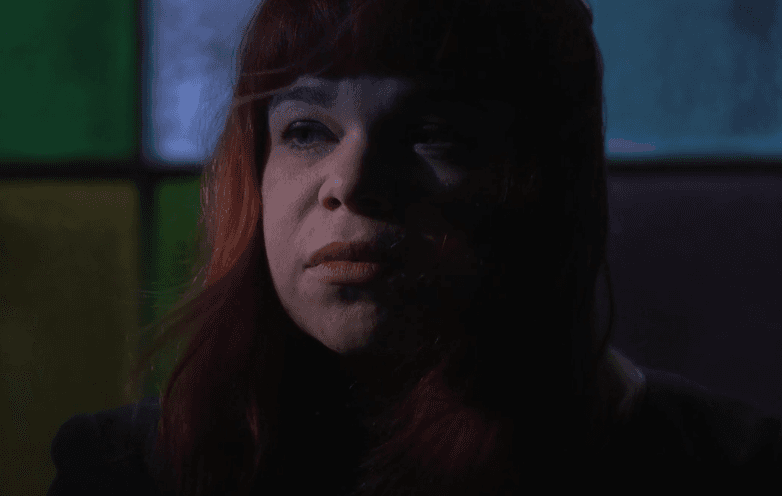Samantha Crain hopes to create new traditions by singing and writing in Choctaw.
“So much of its original identity is gone because of the Christianization that has happened. If you look around my house, every book that says Choctaw on it, anything about songs … it’s just Christian hymns being sung in the Choctaw language. There were definitely songs my great-grandpa was singing before they started singing whatever Christian hymns were being [sung].”
Today, Samantha Crain, a Choctaw musician from the small town of Shawnee, Oklahoma, is preserving the native language in her own way. On her latest album, "You Had Me at Goodbye," Crain sings about love and small-town struggles. One song in partricular, "Red Sky, Blue Mountain," stands out. Unlike the other songs on the album, it was written and performed in Choctaw. As Crain explains, she’s using the language to reimagine the culture and push it past its colonial influence.
Crain has been performing, recording and writing songs since 2007. Her music blends pop, blues and folk sounds; the influence of Woody Guthrie, a fellow Oklahoman troubadour, is evident in her work. She's toured internationally and her music has been featured on TV shows such as "Beverly Hills, 90210," HBO's "Hung" and the film "Barking Water." In 2009, Crain won two Native American Music Awards for folk album of the year and songwriter of the year. She currently lives in Norman, Oklahoma.
Crain wrote the song "Red Sky, Blue Mountain" after witnessing the protests against the Dakota Access pipeline at Standing Rock, North Dakota, which began in early 2016. She was struck by how little respect so many people had for the land, even though it’s one of the most important aspects of indigenous culture. The phrases "red sky and blue mountain," she says, refer to an apocalyptic vision of nature in which the scenes are reversed. The lyrics she sings translate as, “A red sky, blue mountain born to change the world/And we did/But what have we done?”
“The Choctaws were kind of born to bring good to the land that they were put on. And so that's where the line 'born to change the world' comes from," she explains.
Crain says that the song speaks to humanity as a whole. She's saying, yes, we have changed the world, we have put our footprint on it. She asks the listener: Is this something that is good in the long run? In both its narrative form and chord structure, "Red Sky, Blue Mountain" resembles a traditional American folk song, she says.
"I wanted to keep it kind of in the format of like a spiritual or a hymn or just a traditional folk song. That way it's easy to be passed along. It's easy for people that are maybe just learning the language or don't know the language. It's easier for them to catch on and be able to sing along and share with other people," she says.
Linguistic preservation is paramount for the Choctaw and other indigenous cultures. For some Native communities, heritage-language learning starts with enrolling children in schools where they are immersed in that community’s language and culture.
Crain says that whenever she attends a cultural celebration day or an event within her tribe, most of the songs being performed are "Amazing Grace" or a Christian hymn being sung in the Choctaw language.
"I just really want there to be songs that are, I think, more universally important to Choctaws as a whole and not necessarily focused on this one period of history within the tribe which was the time that we were taken from Mississippi, moved to Oklahoma and then made to wear, you know, colonial-looking clothes."
By creating a new song written and performed in Choctaw, she hopes to inspire others to make new music in the Choctaw language. To create new traditions.
"You know, I'm not expecting this song to be … the next 'Big Rock Candy Mountain' for Choctaws or something. But I do want to create an environment where these kinds of songs can continue to be written. So that way, the Choctaw culture does have songs like that where they're [still being sung] 50 years from now."
For more about Samantha, watch the video produced by Allison Herrera and Fire Thief Productions.
Future Folk shares the stories of communities through the music that they make. It is a partnership between PRI’s The World and the Smithsonian Folklife Festival.
